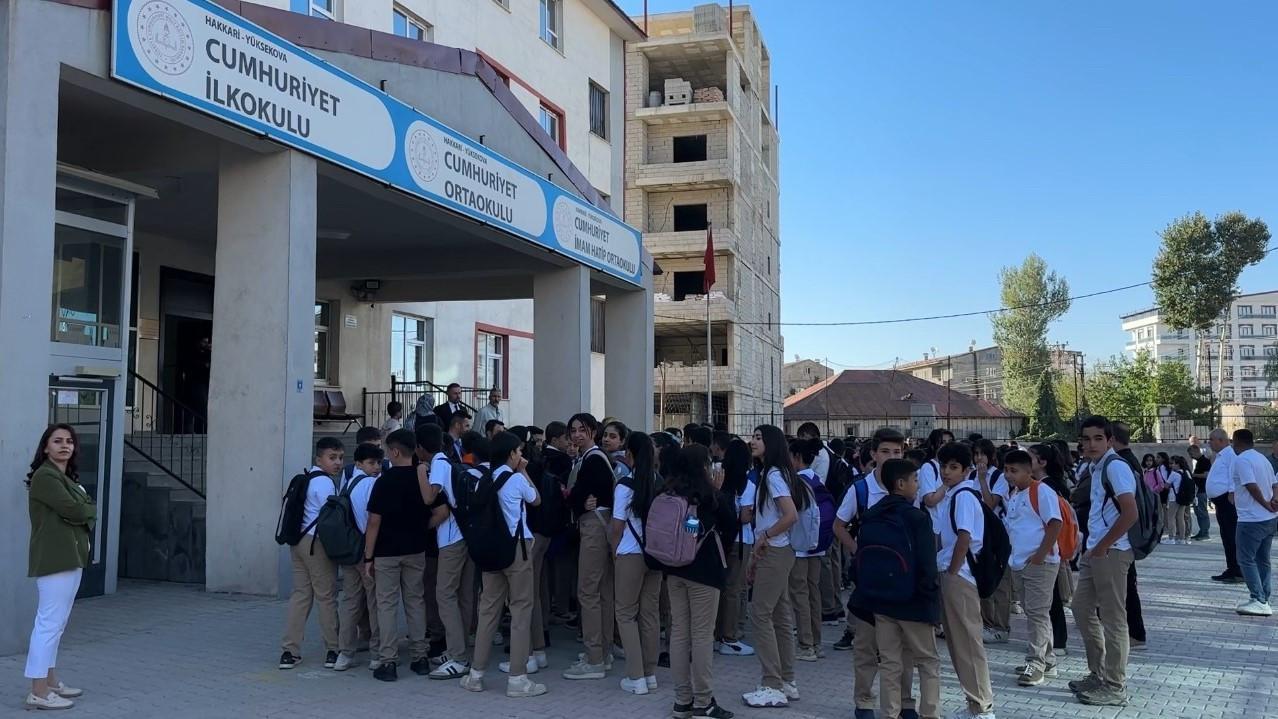
Türkiye marked the first day of the new academic year on Sept. 8 with a symbolic start: Millions of students across the country attended lessons dedicated to protecting forests and took home tree saplings to plant.
This initiative emerges amid a summer of catastrophic wildfires ravaging the nation.
Hundreds of fires scorched vast forested areas in the country’s western and southern regions during the summer months, destroying ecosystems and displacing wildlife, while prompting mass evacuations in rural communities.
As a step to spread awareness on the issue, students watched a short film titled “A Sapling for Every Child” on the first day, while all of the elementary school pupils received saplings to plant.
Within this scope, the opening week is set to feature broader awareness activities centered on forest preservation and environmental stewardship.
Education Minister Yusuf Tekin said the initiative reflects the government’s goal of instilling environmental awareness in younger generations.
“The ‘green homeland’ consciousness that we added to our curriculum has once again shown its vital importance after this summer’s wildfires,” Tekin said in a statement.
Beyond a strong emphasis on wildfire awareness, the new school year also brings a series of significant changes.
Uniforms have returned this year, ending more than a decade of casual dress in many schools.
Several schools across Türkiye adopted a “bell-free” system as part of efforts to foster greater responsibility among students, as they are expected to manage their schedules independently.
Teachers, like students, are now barred from using mobile phones in classrooms.
Beyond structural reforms, the government is also weighing broader revisions.
Tekin confirmed that the 12-year compulsory education system will remain under review amid growing debate, saying “a consensus is forming in favor of reducing the length of compulsory schooling.”
Still, challenges persist in the current system.
A report by the Turkish Education Association’s think tank (TEDMEM) in April found that more than 612,000 children of compulsory school age remain out of school, most of them between 14 and 17 years old.
This comes as families face heavy costs for transport and meals, with monthly lunchbox expenses averaging 2,000 Turkish Liras ($48) and school bus fees exceeding 3,000 liras ($73) in major cities.
The 2025-2026 academic calendar sets the first midterm break for Nov. 10-14, coinciding with the death anniversary of modern Türkiye founder Mustafa Kemal Atatürk. Schools will hold commemorative events in the preceding week, including panels, competitions and exhibitions.
The first semester will end on Jan. 16, 2026, with a winter holiday scheduled from Jan. 19 to 30. The second semester will run from Feb. 2 to June 26.